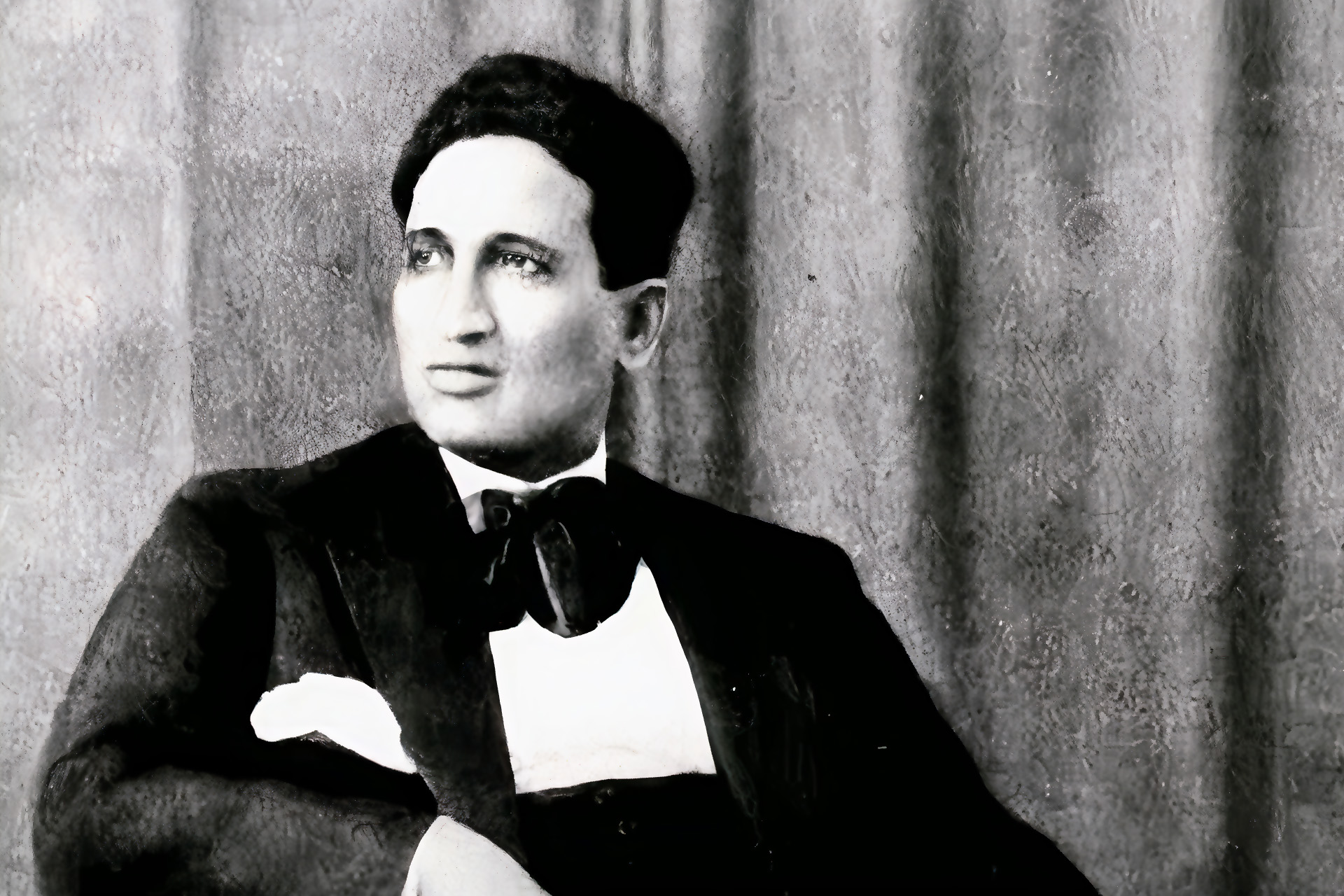Patriotism and overwhelming popularity are the basis chosen by the makers of the works of art that documented the biography of the people's artist Sayed Darwish, who passed away on this day 100 years ago, and despite his short life of only 31 years, his abundant and diverse artistic legacy and the revolution he brought about musically gave him a place among the most important musicians of the 20th century.
"Sayed Darwish" 1966
The first of these works was Sayed Darwish, presented by director Ahmed Badrakhan in 1966, and one of the first autobiographical works in Egyptian cinema.
Karam Mutawa embodied the character of the People's Artist, and Badrakhan was keen to present a vibrant personality, through the stations of his life since he was a young child born in Kom El Dikka, and his insistence on learning the oud and music despite his mother's refusal.
The film runs between two lines in parallel, the first is the personal line that dealt with Darwish's relationship with his mother and sisters and his love life, and the artistic line that included the patriotic songs presented by the "People's Artist" during his artistic career. Director Ahmed Badrakhan employed 27 pieces of music and lyrics to serve the events of the film, and Ali Ismail sang for the film.
In a previous interview with the artist Karam Mutawa, he talked about his attempts to learn to play the oud to embody the character of Sayed Darwish, which introduced him to the history of cinema, and he was keen to go to his home in the Kom El-Dikka neighborhood in Alexandria Governorate and learn about his environment, life and the café in which he was sitting, and he used his brother's son and was in the opera choir, where he gave him information about the personality of Sayed Darwish, including that he was not writing his music in a "musical note", but it was a person named Hamed Morsi He accomplishes this task, which has memorized the melodies of Sayyid Darwish, who only hummed them.
A life journey
Many years after Ahmed Badrakhan's film, Sayed Darwish returned to the screen again, this time through a film produced by Al Jazeera, directed by Wael Sharkas, a documentary film that tells the "journey of life" Sayed Darwish, who begins with his death before receiving the return of Saad Zaghloul from exile, then the film starts after and chronicles the life story of Sayed Darwish from his childhood to youth and the impact of his birth in Alexandria on his music, and how his experience with the brothers Amin and Salim Atallah achieved a shift in transformation, His trip with them outside Egypt burdened him with experiences, so he returned to present his experience in musical theater.
The film's guests analyze how Sayed Darwish was able to make a musical revolution that changed the course of Egyptian music, thus pioneering his song "Kan El Satan".
The film did not overlook the famous love story that brought him together with a woman named "Jalila" and how this resulted in his emotional songs such as "Ana Hoyt" and "Light of the Soul Betjeb".
"Oh date Zaghloul".. How did it come to light?
The documentary film "Meshwar Hayat" is not the only work produced by Al Jazeera about the People's Artist, in 2022, within the episode "Out of Text", a documentary entitled "Ya Balah Zaghloul... How did it come to light?" who focused on the revolutionary side of his life.
The work also shed light on the national songs and operettas presented by the People's Artist, through a number of musical specialists who analyzed his experience in works such as "Ya Aziz Aini", "Ya Balah Zaghloul" and "Qom Ya Masri", during which he was interested in expressing the issues of the working class and ordinary Egyptians.
Egyptian musician Fathi al-Khamisi says in the film that Dorish used to sit in cafes and on sidewalks listening to people's complaints, and used his art to fight against the English and against the royal palace through his experience in musical theater.
Nahla Matar, a professor of theory and music composition, pointed out how his songs were drama that expressed the stories of the people, as his song "Qom Ya Masri" was a cry echoed by Egyptians in the demonstrations of the 1919 revolution.
The film reveals how the song "Ya Balah Zaghloul" was used as a political publication against the British for the popular movement after the exile of Saad Pasha Zaghloul and his companions, which was the spark from which the revolution began.
The work deals with circumventing repression and restrictions, where he was subjected to those who use the name "Saad Zaghloul" to prison by the English occupation, so he circumvented the situation and the Egyptians used the song without fear of punishment, and also how Sayed Darwish was also opposed to the Royal Palace agent of the British at this time, Al-Khamisi tells in the film that Darwish's position was behind the song "Shake the crescent, Mr. May God limit what is between us and you other than love for the homeland, O government." His song "Aho Da Elly Sar" later became one of the inspirational songs of the January 25, 2011 revolution in Egypt.
Theatrical performance
In 1982, director Abdel Ghaffar Odeh presented the play "People's Artist", starring Youssef Daoud and Mohamed El-Sayed Morsi, and the show focused on the approach of the musical language of Sayed Darwish from the different categories of people, where he expressed workers, peasants and other simple people.
With the same name, the young actor Mohamed Adel presented the character of Sayed Darwish in a theatrical show last year 2022, which prompted him to start preparing for a biographical series through which he works to present the character again, but on television.

